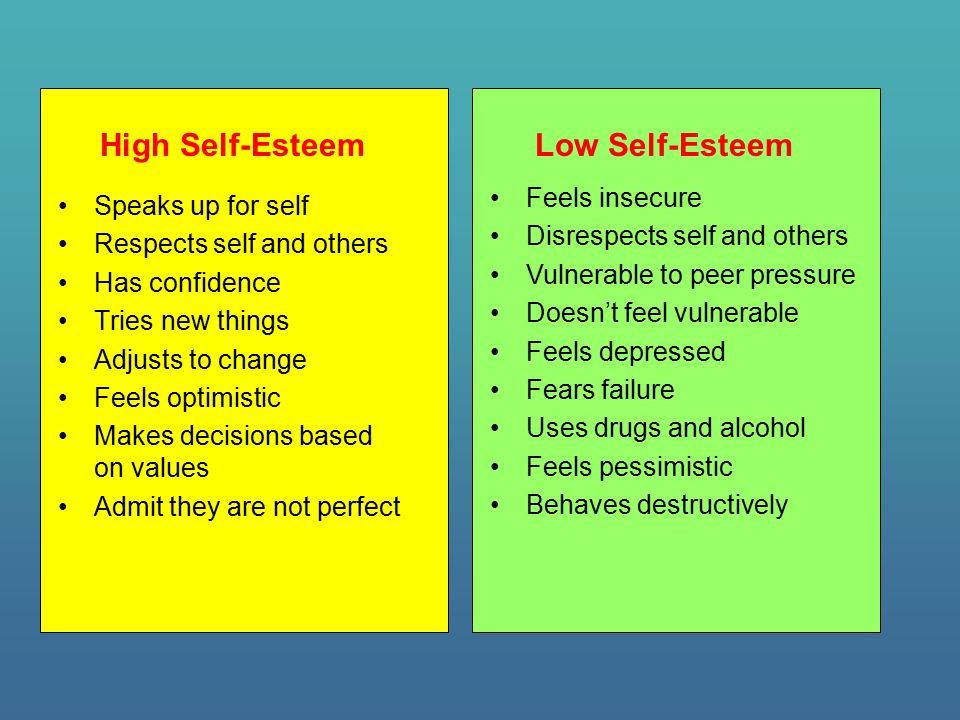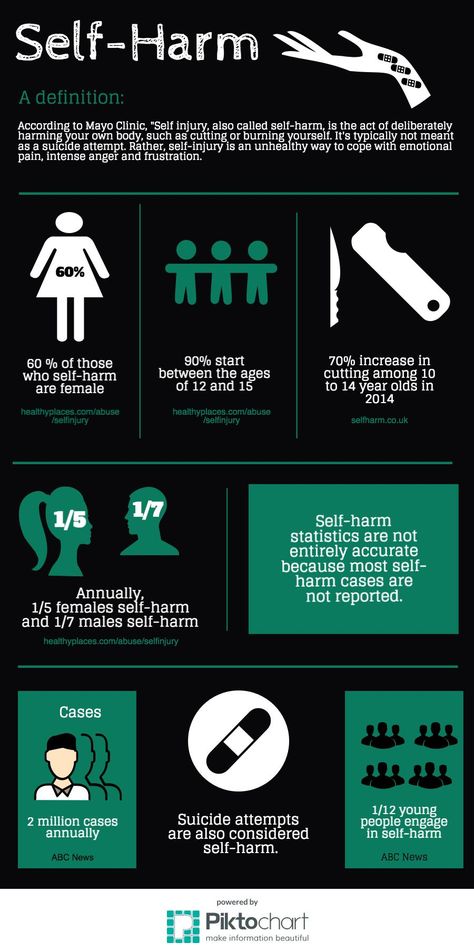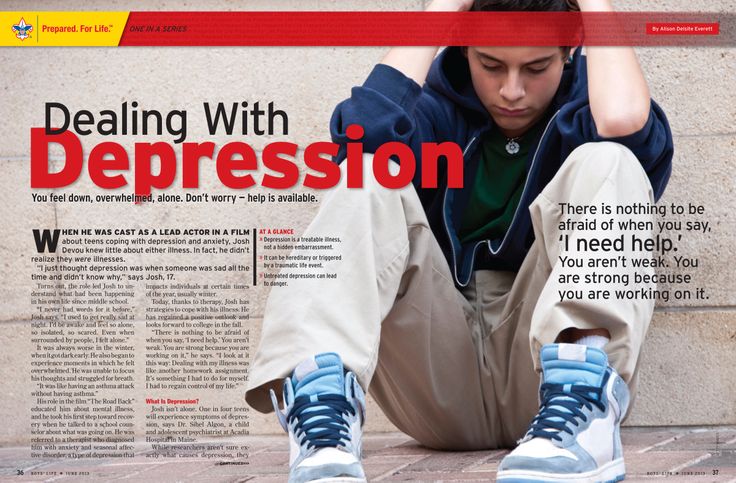Dealing with the loss of your mother
10 Tips for Handling the Grief
The finality of death can feel almost unbelievable, particularly when it strikes a parent, someone whose presence in your life may have never wavered.
You finished growing up and successfully reached adulthood, but you still needed (and expected to have) your parents for years to come.
The loss of their support, guidance, and love can leave a vast emptiness and pain that might seem impossible to heal, even if their death was expected.
Or, maybe you and your parent were estranged or had a complicated relationship, resulting in a roller coaster of conflicting emotions.
Yet the world at large may expect you to recover from your grief fairly quickly — after the prescribed 3 days of bereavement leave, perhaps padded with a few extra days of personal time — and get back to business.
There’s no right or wrong way to grieve the loss of a parent, but these strategies can offer a starting place as you begin to acknowledge your loss.
Sadness is common after the loss of a parent, but it’s also normal for other feelings to take over. You may not feel sad, and that’s OK, too. Perhaps you only feel numb, or relieved they’re no longer in pain.
Grief opens the gate to a flood of complicated, often conflicting emotions. Your relationship with your parent might have had plenty of challenges, but it still represented an important key to your identity.
They created you, or adopted and chose to raise you, and became your first anchor in the world.
After such a significant loss, it’s only natural to struggle or experience difficulties coming to terms with your distress.
You might experience:
- anger or frustration
- guilt, perhaps for not contacting them frequently or not being present for their death
- shock and emotional numbness
- confusion, disbelief, or a sense of unreality
- hopelessness or despair
- physical pain
- mental health symptoms, including depression or thoughts of suicide
- relief that they’re no longer in pain
No matter how the loss hits you, remember this: Your feelings are valid, even if they don’t line up with what others think you “should” feel.
People react to grief in different ways, but it’s important to let yourself feel all of your feelings.
There’s no single right way to grieve, no set amount of time after which you can automatically expect to feel better, no stages or steps to check off a list. This in itself can be difficult to accept.
Denying your feelings may seem like a route toward faster healing. You might also get the message that others expect you to bury your grief and move on before you’ve come to terms with your loss.
Remind yourself grief is a difficult process as well as a painful one. Try to not let the opinions of others sway you.
Some people work through grief in a short time and move forward with the remnants of their sadness safely tucked away. Others need more time and support, no matter how expected the death was.
If your parent passed after a long illness, you may have had more time to prepare, but no amount of preparation makes your grief any less significant when it hits. You might still feel stunned and disbelieving, especially if you held out hope for their recovery to the very end.
You might still feel stunned and disbelieving, especially if you held out hope for their recovery to the very end.
The unexpected death of a parent still in middle age, on the other hand, may force you to confront your own mortality, a battle that can also complicate grief.
As you navigate the days, weeks and months following the loss of a parent, you may experience a variety of emotions and feelings. These may also change over time.
Some people may go through what is referred to as the five stages of grief. These include:
- Stage one: denial. This can feel like being in a state of shock or confusion surrounding the death of a parent. A person in this stage may feel the need to keep busy all the time, or do what they can to avoid dealing with the issue.
- Stage two: anger. A person in this stage may feel frustration, rage or even resentment. They may display behaviors that are irritable, sarcastic or pessimistic. They may also get into arguments or turn to alcohol or drugs.
- Stage three: bargaining. A person in the bargaining phase of grief may have feelings of shame, guilt, blame or insecurity. They may ruminate on matters of the past or worry about the future. They may judge themselves or others, overthink and worry.
- Stage four: depression. During this stage, people may feel hopeless, sad, disappointed and overwhelmed. They may experience changes to their sleep or appetite, have a lack of interest in social activities and have reduced energy.
- Stage five: acceptance. People in the final stage of grief may feel a sense of self-compassion, courage, pride and even wisdom. They may accept reality for what it is, be present in the moment as it happens and be able to adapt and cope with the situation.
Grief often has a significant impact on daily life:
- Your state of mind might change rapidly, without warning.
- You might notice sleep problems, more or less of an appetite, irritability, poor concentration, or increased alcohol or substance use.

- You might find it tough to work, take care of household tasks, or see to your own basic needs.
- The need to wrap up your parent’s affairs may leave you overwhelmed, particularly if you have to handle this task alone.
Some people find comfort in the distraction of work, but try to avoid forcing yourself to return before you feel ready, if possible. People often throw themselves into work, taking on more than they can comfortably handle to avoid scaling the ever-present wall of painful emotions.
Finding a balance is key. Some distraction can be healthy, provided you still make time to address your feelings.
It might seem difficult, even inconsiderate, to dedicate time to self-care, but prioritizing your health becomes even more important as you recover from your loss.
Keep these tips in mind:
- Get enough sleep. Set aside 7 to 9 hours each night for sleep.
- Avoid skipping meals.
 If you don’t feel hungry, choose nutritious snacks and small meals of mood-boosting foods.
If you don’t feel hungry, choose nutritious snacks and small meals of mood-boosting foods. - Hydrate. Drink plenty of water.
- Keep moving. Stay active to energize yourself and help raise your spirits. Even a daily walk can help.
- Aim for moderation. If you drink alcohol, try to stay within recommended guidelines. It’s understandable to want to numb your pain, but increased alcohol use can have health consequences.
- Reset. Rest and recharge with fulfilling hobbies, such as gardening, reading, art, or music.
- Be mindful. Meditating or keeping a grief journal can help you process emotions.
- Speak up. Talk to your healthcare provider about any new physical or mental health symptoms. Reach out to friends and other loved ones for support.
Talking to family members and other loved ones about what your parent meant to you and sharing stories can help keep their memory alive.
If you have children, you might tell stories about their grandparent or carry on family traditions that were important in your childhood.
It might feel painful at first to reminisce, but you may find that your grief begins to ease as the stories start flowing.
If you feel unable to openly talk about your parent for the moment, it can also help to collect photographs of special times or write them a letter expressing your grief about their passing.
Not everyone has positive memories of their parents, of course. And people often avoid sharing negative memories about people who’ve passed. If they abused, neglected, or hurt you in any way, you may wonder whether there’s any point to dredging up that old pain.
If you’ve never discussed or processed what happened, however, you might find it even harder to heal and move forward after their death. Opening up to a therapist or someone else you trust can help lighten the load.
Many people find that specific actions can help honor a deceased parent and offer a measure of comfort.
You might consider:
- creating a small home memorial with photos and mementos
- planting their favorite tree or flower in your backyard
- adopting their pet or plants
- continuing work they found meaningful, like volunteering or other community service
- donating to their preferred charity or organization
Upon hearing the news that an estranged parent has passed away, you might feel lost, numb, angry, or surprised by your grief. You might even feel cheated of the opportunity to address past trauma or unresolved hurt.
Life doesn’t always give us the answers we seek or the solutions we crave. Sometimes you just have to accept inadequate conclusions, however unfinished or painful they feel.
Knowing you can no longer address the past might leave you feeling as if you’re doomed to carry that hurt forever.
Instead of clutching tight to any lingering bitterness, try viewing this as an opportunity to let go of the past and move forward — for your sake.

Some things are truly difficult to forgive, but harboring resentment only harms you, since there’s no one left to receive it.
A letter can help you express things previously left unsaid and take the first steps toward processing the painful and complex feelings left after their death. Working with a therapist can also help you begin to heal the pain of the past.
Friends and loved ones may not know exactly what to say if they haven’t faced the same type of loss, but their presence can still help you feel less alone.
It’s normal to need time to mourn privately, but at the same time, completely isolating yourself generally doesn’t help. The companionship and support of those closest to you can help keep you from being overwhelmed by your loss.
Beyond providing a supportive presence, friends can also help out with meals, child care, or handling errands.
Just be sure to let others know what you need.
If you want to talk about your parent, you might ask if they’re able to listen. If you’d like a break from thinking about their death, you might ask them to join you in a distracting activity, whether that’s playing a game, watching a movie, or working on a project around the house.
If you’d like a break from thinking about their death, you might ask them to join you in a distracting activity, whether that’s playing a game, watching a movie, or working on a project around the house.
You might notice family relationships begin to change after your parent’s death.
Your remaining parent, if still living, may now look to you and your siblings for support. Your siblings, if you have any, are facing the same loss. Their unique relationship with your parent can mean they experience the loss differently than you do, too.
It’s not unusual for siblings to experience conflict or slowly drift apart, particularly if you disagreed over your parent’s end-of-life care.
Yet family bonds can provide comfort during grief. You’ve experienced the same loss, even though that person meant something different to each of you.
If you cherish your family relationships, make an effort to strengthen those bonds and draw closer together.
This might mean reaching out more often than in the past or inviting them more regularly to visit and participate in family gatherings.
It can also mean listening with empathy when a sibling who had a difficult relationship with your parent now finds it hard to come to terms with their conflicting emotions.
Friends and loved ones may offer comfort, but a grief support group can fulfill a different kind of social need by connecting you to others who have experienced similar losses.
It’s not uncommon to feel irritated or frustrated when people in your life who haven’t experienced loss attempt to console you or express messages of concern.
No matter how kind or well intentioned their words are, they simply don’t understand what you’re going through.
In a support group, you can find a shared understanding, along with validation of the emotions you feel unable to express to anyone else.
There’s no shame in needing extra support as you begin processing your parent’s death. In fact, many counselors specialize in providing grief support.
A therapist can offer validation and guidance as you begin working through the complex emotions that tend to accompany grief. Grief counselors can also teach coping strategies you can use as you begin adjusting to life without your parent.
Grief counselors can also teach coping strategies you can use as you begin adjusting to life without your parent.
Therapy also offers a safe space to unpack any guilt, anger, resentment, or other lingering emotions around a deceased parent’s toxic or hurtful behavior, and to achieve some level of closure.
If you want to forgive your parent but feel unsure how to begin, a therapist can provide compassionate support.
Our guide to finding affordable therapy can help you get started.
Grief is a complex process that can take time.
Everyone will experience their own journey of grief differently. Some people may take longer than others to fully grieve the loss of a person.
Feelings of grief may come and go, with the intensity of grief going up and down at various times. This can sometimes may it hard to feel you have made any progress with your grief.
It is possible you may feel better for a period of time, only to have feelings of grief return. This is normal.
This is normal.
Some people may find grief is worse around the holidays or other significant dates.
The pain associated with grief may lessen over time, but it is still possible to feel emotionally connected to a person who has died for years.
Grief after a parent’s death can drain you and leave you reeling, no matter what kind of relationship you had.
Remember, grieving is a normal, healthy process, one that looks different for everyone. Treat yourself with kindness and compassion, embracing patience as you take the time you need to work through your loss.
Crystal Raypole has previously worked as a writer and editor for GoodTherapy. Her fields of interest include Asian languages and literature, Japanese translation, cooking, natural sciences, sex positivity, and mental health. In particular, she’s committed to helping decrease stigma around mental health issues.
Grieving the Loss of a Mother: Ways Daughters Can Cope
There’s no right or wrong amount of time to grieve the passing of your mother. Sometimes, these feelings can rush back years after your loss.
Sometimes, these feelings can rush back years after your loss.
Losing your mother at any age can be a traumatic experience. The loss may be sudden, or you may have witnessed a long decline in health.
Your initial grief may be severe, followed by moments of sorrow even as time goes by. Sometimes, the effects of parental loss can affect your daily life, weeks or years later.
No matter the kind of relationship you had, losing your mother can feel overwhelming. Support is out there. There are many others just like you, who have stories of loss to share.
In the moment, it can be difficult to focus on much beyond the loss of your mother. Grief can occur in stages, with immediate symptoms.
A 2007 study suggests the death of a mother has more negative effects on daughters than on sons.
According to the study, women who experience the loss of a mother are more likely than men to:
- binge drink
- have a greater decline in self-esteem
- have a lower level of personal mastery (personal growth)
And a 2015 study found that, when losing a parent, women have a more intense grief response and more difficulty adjusting to the loss.
Overall, loss can cause a variety of physical and psychological effects. A 2008 study suggests that grief is linked to increased chances of:
- cancer
- cardiac issues
- immune disorders
- high blood pressure
A 2021 study found that parental loss is linked with depression and a compromised sense of self in young adults.
The Diagnostic and Statistical Manual of Mental Disorders (5th ed.), a reference guide that mental healthcare professionals use, notes an array of normal emotions in the year following parental loss.
These feelings may include:
- regret
- remorse
- anxiety
- guilt
- emptiness
- rage
- anger
- sadness
- numbness
Losing your mother can mean more than clinical symptoms. You may feel like you’ve lost an important part of your support system. You may experience regret for lost family traditions and cultural knowledge.
There may be times when you wonder how successfully you’re fulfilling your own role as a mother.
You may also find relationships within your family are now strained. Siblings and other parental figures might feel distant. They may need their own time to grieve, or may not be emotionally available in a way your mother once was.
The effects of grief after the loss of a mother are different for everyone. Grief that impairs your daily functioning, or persists for longer than a year, may require the support of a mental health professional.
There’s nothing that can replace the presence of your mother, but there are ways to help ease the burden of loss.
You may find some solace when you:
Keep up with traditions
It may help your grief to incorporate your favorite traditions from your mother. This could mean making recipes she used to cook, or using the same fragrances she used in her home.
Starting your own traditions may help you find comfort knowing your children will have both yours and your mother’s traditions to carry on with them.
Focus on happy memories
It can be painful to think back on the happy times when you’re grieving the loss of your mother. As time goes on, however, you may find comfort in happy reminders such as pictures, books, or keepsakes.
As time goes on, however, you may find comfort in happy reminders such as pictures, books, or keepsakes.
Look to other maternal figures
Being a mother doesn’t always mean a blood connection. You may have many motherly figures in your life.
If you’ve lost your mother, finding another maternal support can help you retain those feelings of guidance and understanding.
Practice mindfulness
Mindfulness is the ability to focus on the moment and not follow thoughts down an emotional path.
When you recall a painful memory related to the loss of your mother, mindfulness may help you acknowledge the memory but not dwell on it.
Honor your mother
Honoring your mother’s memory will mean something different to everyone. You might honor her by donating to her favorite charity. Maybe your mother always wanted you to climb Mount Everest.
Finding goal-oriented ways to honor your mother may also provide a sense of personal accomplishment.
Help others
Many other people, children and adults, have experienced parental loss. By offering your own maternal support, you may become an important part of someone’s journey with grief.
By offering your own maternal support, you may become an important part of someone’s journey with grief.
Seek local and professional support
Sometimes, it may feel as though nothing you do will ease the loss of your mother. There’s no need to meet this challenge alone.
Local support groups, online chat forums, and mental health professionals can partner with you through the grieving process. The American Psychological Association’s Psychologist Locator can help you find someone who specializes in grief recovery.
If your grief is becoming unbearable, help is available right now
If your grief is becoming very overwhelming and you’re considering self-harm or suicide, help is available right now:
- Call a crisis hotline, such as the National Suicide Prevention Lifeline at 800-273-8255. It’s available 24/7 and offers free, confidential support.
- Text HOME to the Crisis Text Line at 741741.
- Not in the United States? Find a helpline in your country with Befrienders Worldwide.

Daughters who lose their mother may experience grief differently than sons.
Cultural and tradition losses, plus a lack of maternal guidance, can leave you feeling lost and disconnected from those closest to you.
While there’s no way to completely replace your mother’s presence in your life, there are ways to honor her memory and regain your sense of self.
If you’ve experienced extreme grief for more than a year, or feel as though you are having trouble completing daily tasks, you may find speaking with a mental health professional helpful.
Remember, you are not alone. Support is available right now.
Here are some books that may help as well:
- “Healing After the Loss of Your Mother: A Grief & Comfort Manual” by Elaine Mallon
- “Motherless Daughters: The Legacy of Loss” by Hope Edelman
- “How to Survive the Loss of a Parent: A Guide for Adults” by Lois F. Akner with Catherine Whitney
How to survive the death of a mother: advice from a psychologist on how to let go of a dead mother
Having lost your parents, a person experiences a shock, despite how old he is at the moment. Even for adults and wise life experience, it seems that parents will live forever. When a tragedy occurs, people find themselves mentally unprepared for it, they don't know how to survive the death of their mother and let her go , even if they understood that this would happen soon. How to survive the sudden death of a mother is an even more difficult question.
Even for adults and wise life experience, it seems that parents will live forever. When a tragedy occurs, people find themselves mentally unprepared for it, they don't know how to survive the death of their mother and let her go , even if they understood that this would happen soon. How to survive the sudden death of a mother is an even more difficult question.
1 Allow yourself to cry and grieve
The most important advice is to come to terms with the loss, to accept it. You need to give yourself time to grieve, so that later you can only remember the good. Over time, sharp emotions will give way to melancholy, nostalgia. You will never stop loving your mother, now you just need to survive her departure. Let your emotions run wild, don't try your best to play the iron lady.
If you plunge into negative emotions for a long time or ignore them, you run the risk of falling into depression. So give yourself the opportunity to mourn the loss.
Do not miss
-
Do not miss
How to support a person in grief.
 How to help, what to say, how to behave?
How to help, what to say, how to behave?
You can use this method - put a chair in the center of the room, sit on it and take your soul away. Cry as much as you can until you get tired. At some point, the nervous system will say “stop”, and from that moment its reboot will begin - you will perceive everything more adequately and calmly.
2 Give yourself time
As long as you need. For someone, two weeks is enough for strong feelings, and someone can experience acute feelings for months. This process is individual. Usually the shock is experienced by those whose loved one died suddenly, but it is morally more difficult for those who have learned how to survive the death of their mother from cancer . Suffering, moral emptiness, fatigue - all this affects the psyche.
Remember that over time all emotions weaken. The pain will not seem so sharp and all-consuming. Time really heals - these are not empty words. The memory of a loved one will always be with you, because true love does not pass.
The memory of a loved one will always be with you, because true love does not pass.
Do not miss
-
Do not miss
Mikhail Efremov told why his mother died
The human psyche is arranged in such a way that the bad things are quickly forgotten, and the good things that connected you with your mother remain forever in your heart, helping to maintain a bright image of a loved one.
It is much more difficult to answer the question: “ How to help a child survive the death of his mother ”, because it is very difficult to explain to him that time heals. This is an abstract concept that does not fit in the minds of children. Care and support of loved ones, talking about the mother, patience and acceptance over time will help the baby cope with the loss.
3 Come back to life gradually
Do not feel guilty about sometimes wanting to watch a movie, laugh with friends, go for a walk or go on vacation. Right now, good emotions are vital. Think about the fact that mom would like to see you happy even in this difficult moment.
Right now, good emotions are vital. Think about the fact that mom would like to see you happy even in this difficult moment.
4 Get busy
No matter how terrible it may sound, but the preparation for farewell and funeral distracts: you have to do a lot in a fairly short time. It helps to concentrate and not revel in grief too much.
The same can be said about going to work - it's better not to delay it. Set aside a few days for yourself to mourn, and then gradually return to normal life. The team, the situation and work responsibilities make it necessary to mobilize forces.
Do not miss
-
Do not miss
Help yourself: how to hold out until the appointment of a psychologist, if it is very bad
Do not forget about hobbies and hobbies: this is what makes life brighter. Do not give up what you like, on the contrary, right now, devote as much time as possible to your favorite things. If you are passionate about creativity or needlework, then direct your energy in this direction. Dedicate your creations to your mother, remembering that her life continues in you and in what you do.
If you are passionate about creativity or needlework, then direct your energy in this direction. Dedicate your creations to your mother, remembering that her life continues in you and in what you do.
5 Avoid loneliness
Any loss is much easier to endure if you share it with your loved ones - relatives or friends who will help you not only in word but also in deed. They are always ready to listen - in this situation it is very important. Therefore, do not dwell on yourself and your emotions, share them, and you will feel better.
6 Don't change your life
Often, under the influx of feelings, thoughts about reorganizing life come to mind. It seems that the salvation from negative emotions is in change. There may be a desire to divorce her husband, quit her job, sell an apartment, move to another country. You should not go on about these desires - they are dictated by a sense of loss, grief, loneliness.
Do not miss
-
Do not miss
Need help! 7 situations when it's definitely time to see a psychologist
Perhaps there really are problems in your relationship with your spouse, and you are not working in the best place, but it is better to make a decision soberly, weighing all the pros and cons. At the moment you need the support of loved ones, including your husband, at psychologist's advice on how to survive the death of mom , and in a stable job. Therefore, wait with serious decisions until the emotions subside, and you can not take what is happening calmly.
At the moment you need the support of loved ones, including your husband, at psychologist's advice on how to survive the death of mom , and in a stable job. Therefore, wait with serious decisions until the emotions subside, and you can not take what is happening calmly.
Expert
Merishan Saona
Parapsychologist, Tarot reader
What impression did this article make on you?
How to get over the death of your mother and help yourself after
Find out what feelings can arise during this period and how to help yourself get over the loss. To do this, we studied grief research and spoke with family therapist Olga Shaveko, who specializes in working with trauma and loss.
What kind of feelings can one encounter after a loss?
The experience of loss depends on personal characteristics, social environment, attitude towards death and relationship with mother. In the first days and weeks after a loss, many people cannot go to work or cope with household chores because this is the acute phase of mourning.
In the first days and weeks after a loss, many people cannot go to work or cope with household chores because this is the acute phase of mourning.
Grief researcher William Vorden writes that grief and other feelings are needed to adapt to loss. There are a number of sensations that people usually name when describing their experience of mourning - any of them are normal. According to the charity Independent Age, after the death of a loved one, people may experience:
-
shock and feeling of unreality, especially in the first days after death;
-
general or specific anxiety;
-
anxiety about own mortality;
-
anger and irritation - for example, they can get angry at loved ones;
-
sadness;
-
feeling of guilt;
-
feeling of hopelessness;
-
the need to support others and suppress one's own grief;
-
some relief if the person has been ill for a long time.

Your experience may vary. It's normal if you find it difficult to determine what specific feeling you are experiencing. Strong emotions can be frightening, but they usually become weaker over time.
Olga Shaveko , systemic family therapist, specializes in working with trauma and loss
There are five stages that a person goes through during the loss of a loved one: denial, aggression, bargaining, depression and acceptance. But it is important to remember that the process of mourning does not proceed clearly in stages. The stages are very conditional, and much depends on the situation, on the characteristics of the person, on what kind of support is nearby.
The stages usually go through many times, and the strength of emotions gradually decreases. Acceptance is not always possible. Then the process of mourning can become chronic and stretch for a long time.
What to do if you feel guilty?
Guilt arises when a person believes that his actions or inaction somehow worsened the situation. Psychologist Edward Kubani has found that people who have experienced a traumatic event often misrepresent their role in it. For example, they exaggerate the degree of their responsibility or think that they did wrong. These are distortions of our thinking, they can be noticed in the process of introspection or analyzed together with a psychologist.
Clinical psychologists Matthew Valley and Hardeep Kaur in an article for Psychology Tools offer this exercise to deal with guilt:
-
Write down your regrets and everything you blame yourself for.
-
Try to look at your feelings with compassion.
 We all regret things and we all make mistakes, but relationships aren't all about mistakes and regrets.
We all regret things and we all make mistakes, but relationships aren't all about mistakes and regrets. -
You may be able to take a broader view and give yourself a little kindness, like a dear friend. Ask yourself:
-
If your mother could hear and see how sorry and guilty you are, how would she comfort and comfort you?
-
What would a dear and wise friend say to you?
-
If another person felt sorry and guilty, what would you say?
-
Talk to your friends and family about how you are feeling, they may be able to support you.
Olga Shaveko
Women often come to me with regrets that they did not have time to talk with their mother, with unspoken grievances. In this situation, it helps to write a letter and express in it everything that was not possible during life. You can do whatever you like with the letter: leave it, burn it, tear it up. If you feel that one letter is not enough, write more.
In this situation, it helps to write a letter and express in it everything that was not possible during life. You can do whatever you like with the letter: leave it, burn it, tear it up. If you feel that one letter is not enough, write more.
Sometimes people feel guilty because they think that somehow they did not take care of the sick person in the right way or were not close enough. Guilt can be, and it's okay to experience it, but it's important to understand that it shouldn't overwhelm you. “If I had acted differently, everything would have been different” - no. While a person blames himself, he does not accept the fact of the loss, scrolls in his head the moments how everything could be fixed.
In order not to fall into self-blame, it is important to remember that you did not know the consequences and could not have done otherwise. Even if you had a fight with your mother the day before, you can look at it this way: the decision that you made then was the only possible one under those circumstances.
Yulia, 25 years old
My mother brought me up quite authoritarianly. I was angry at her and could wish her death. Mom died when I was a teenager. I thought I caused her death with my thoughts. Guilt tormented me until I worked it out in therapy as an adult.
The destruction of the illusion of children's omnipotence helped me, I realized that I could not influence my mother's death with my thoughts. I have been in therapy for over a year now. But I still have a feeling of guilt that I wished her harm, I continue to work with him.
And if there is no grief, is that normal?
Australian scholar and director of the Grieving Center Christopher Hall writes that everyone experiences loss differently. It is possible that you will not grieve in the way that is shown in the films or how relatives come to life from you. You may experience the death of your mother without tears, but it can still be mourning.
If the mother was ill for a long time, the child could mourn her loss even before death. Because the loss is not only death, but also the loss of hope, the loss of close relationships with the mother.
Sometimes it happens that a mother and child do not have a close relationship. Then, even though the mother is a blood relative, perhaps her child may not experience grief from the death of her mother.
Olga Shaveko
After the death of your mother, you can feel relief if the relationship was bad. Then you can feel that conflicts and grievances have ceased. It is difficult to accept the feeling of relief and joy due to guilt. After all, my mother died, and in such a situation it is customary to grieve. But any emotions are normal, you can allow yourself to feel them.
There may also be relief if the mother was ill for a long time and it was difficult to take care of her. When a person is tired and burned out while leaving, they may feel relieved that the hard work is over. And this is also a normal feeling.
When a person is tired and burned out while leaving, they may feel relieved that the hard work is over. And this is also a normal feeling.
Is it possible to prepare oneself psychologically in advance?
If you are thinking about how you will feel during the loss, you can try to explore your own attitude towards death. For example, ask yourself what is most scary about her. This will help you gradually get used to the fact that sooner or later you can face the loss of a loved one.
At the same time, psychiatrist Abigail Brenner, in a publication for the psychotherapist search service, emphasizes that loss will be painful and difficult experience, even if you prepare for it.
The death of a loved one is a great loss that can cause many changes in life. Grieving does not end quickly, and often a person has to adapt not only to the loss of a loved one, but also to the fact that the usual order of things will change.
Olga Shaveko
Even if the mother is sick, death will still be unexpected. No matter how we realize that the disease is difficult, we always live in the moment. For example, one day mom is more cheerful, and this gives hope that everything will work out.
At this moment, you can pay attention to your well-being in order not to burn out. A person with burnout often becomes cynical and irritable, he does not have the strength to empathize and communicate with his mother. And to continue to communicate, to take the hand, it is important to ask all the questions and express feelings until the mother can answer them.
The scientific journal Vestnik TVGU presents the results of a comparative study of the experiences of people who have experienced loss: for some, a loved one left suddenly, for others, slowly, as a result of illness. It turned out that sudden death is more difficult to come to terms with. Faced with this situation, they tend to blame themselves for past conflicts with loved ones and for not being able to say goodbye.
Faced with this situation, they tend to blame themselves for past conflicts with loved ones and for not being able to say goodbye.
We live in the illusion of stability, that tomorrow will come, that you can call your loved ones. And they are not ready for the fact that this can change in one second. Sudden death can hurt a lot because it undermines that sense of stability.
Olga Shaveko
But those who have lost loved ones from a long illness experience grief more acutely. This is due to the fact that they were depressed for a long time due to the serious condition of a loved one and the inability to help him recover. Therefore, if you are caring for your mother during an illness, it is important to carve out time for yourself to rest.
Elena, 28 years old
Mom died a year ago. It was unexpected. She did not get sick, did not complain about her health. Two days ago we talked with her, everything was fine. And then death.
It was unexpected. She did not get sick, did not complain about her health. Two days ago we talked with her, everything was fine. And then death.
What did I feel? I was very hurt. Very sad. I didn't understand why? How? Why so early? I couldn't stop crying for a long time. I didn't believe what was happening. I still don't believe it, a year later. I feel sorry, hurt and hurt that she left so early.
Since then I have turned to a psychologist for help. And just recently it got a little easier. Gradually, the feeling that she is somewhere nearby disappears. She stopped dreaming about me.
How to say goodbye to your mother?
All cultures have rituals of farewell to the dead. They may differ, but they have a similar meaning - they help to recognize the fact of loss, say goodbye, be together in difficult times. According to clinical psychologist Christy Denkla, one of the steps to come to terms with the fact of death is to see the body of the deceased. Therefore, many psychotherapists advise attending the funeral.
Therefore, many psychotherapists advise attending the funeral.
In Russia, it is customary to say goodbye at a funeral, and then at a commemoration. Also, many people remember the deceased on the day of his birth and the day of death.
If you did not have the opportunity to be at the funeral, you can say goodbye in a different way. For example, write a farewell letter and burn it, play your favorite song with your mother at a family meeting, go on a trip to her favorite places. All these actions are symbolic, but they also help to survive grief.
Olga Shaveko
Rituals help to say goodbye. There are situations when it hurts so much that you can’t talk about your mother and remember her. Then the topic becomes taboo. Funerals and commemorations are needed to get everyone together and say goodbye. This is a kind of transition to reality, where the person is no longer next to you.
Mother's birthdays and deaths are a reminder that now is the time to remember and talk about her. Conversations are needed to share sadness with other people, to admit that there was a person, everyone remembers him, but now he is gone. These are the traditions that are worth keeping, because they help to adapt to the loss.
Even if people don't do special rituals, they still tend to remember the dead on their important dates. Often clients come to therapy on the anniversaries of the death of their loved ones.
What should I do if everything around me reminds me of my mother?
Sometimes it's hard to run into constant reminders of your mother. And if you lived together, her things will be everywhere: a toothbrush in the bathroom, laundry in the wash, a mug in the kitchen. But throwing away or removing things can be even more difficult than looking at them.
If mom's room is untouched for many years after death, it can keep the illusion that nothing happened.
This is bad because a person can remain in denial that their mother has died.
Olga Shaveko
Co-founders of the What’s your grief? they advise you to take things apart like this:
Call friends or family members for help. Ask them to collect and throw away things that are definitely not of value (half-eaten food, personal hygiene items, underwear). You can also ask them to help you collect and sort the rest of your things. For example, you can put things in different boxes:
-
keep for yourself;
-
leave for others;
-
sell;
-
donate, donate;
-
discard;
-
things you can't decide about yet.

When sorting, it can be difficult to decide what to do with things. It is important to take breaks, there is no need to take everything apart at once.
You can ask yourself questions:
-
Do I have a place for this item?
-
Should all items be kept? For example, if mom collected porcelain figurines, the collection can take up a lot of space. Then you can keep a few figures for yourself, and give the rest to relatives and friends.
-
Can I take a picture of this item? Sometimes it is difficult to part with a thing, even if it is necessary. In this case, you can take high-quality photos of things and save them as a keepsake.

-
Can I make something of value out of these things? For example, you can make a bedspread out of prints from old T-shirts.
Important things for you, photos, letters can be stored in a special "memory box". Find a suitable storage space and set a time when you remember your mom and look at things from the box, such as death anniversaries and birthdays.
After a loss, especially in the first weeks, it can be difficult to return to mum-related activities. For example, going to your cafe, mom's favorite dish, cycling along your route. It is important to gradually regain the opportunity to visit your favorite places and do your favorite things in a new reality where there is no mother.
Here's a way to gradually deal with evocative situations:
-
Make a list of places and activities that remind you of your mother.
 Arrange the situations from the simplest to the most difficult, causing a lot of feelings.
Arrange the situations from the simplest to the most difficult, causing a lot of feelings. -
Make a plan for how and when you will begin to face the situations you have been avoiding. To make it easier for you, ask a friend or close family member to come with you.
-
Be careful with yourself, it's better to start with small steps because it can be difficult to run into reminders again.
-
If you notice that difficult emotions arise, try to slow down and describe these emotions, feel where exactly in the body they are felt most strongly. This will help you get in touch with your emotions.
How to support yourself after a loss?
Different actions may be required at different times after a loss. Clinical psychologists Matthew Valley and Hardeep Kaur in the article "Grief, loss and bereavement" recommend:
-
Perform any rituals.
 Rituals help to realize the reality of what happened and find its meaning in it.
Rituals help to realize the reality of what happened and find its meaning in it. -
Express your grief, grief and other feelings. For example, keep a diary and record your experiences in it.
-
Tell the story of your loss and grief, such as posting your story on social media. This is also a way to reflect on experiences and get support.
-
Write a letter to your mother about what you wanted to say and did not say. This will help express feelings.
-
Be in touch with your emotions. Many of us are good at suppressing emotions, so feeling them can be difficult and unfamiliar. You can think of each emotion as part of yourself. For example, the part that is angry and the part that is afraid. Distinguishing your emotions is important in order to understand what is happening to you and how you can help yourself.
Olga Shaveko
The better a person understands himself, the easier it is to support himself in times of grief. Support is a word by which everyone understands his own. You can understand what kind of support you need by remembering what kind of support was in the family, or by asking yourself what kind of support I expect. Often we do not ask ourselves such questions, but expect from loved ones that they should know what and when to say.
Support is a word by which everyone understands his own. You can understand what kind of support you need by remembering what kind of support was in the family, or by asking yourself what kind of support I expect. Often we do not ask ourselves such questions, but expect from loved ones that they should know what and when to say.
To be sad, to cry is normal and corresponds to the situation. Many people find it difficult to allow themselves emotions, because there is a feeling that if you let go a little bit, you will never stop crying. The process of mourning passes in waves, sometimes very hard, sometimes it becomes easier.
And often society, people who support, try to distract, say that life goes on and you have to hold on. You can try to get away from emotions for a while, but they will still cover. Then trifling situations like spilled tea can cause sobs. At such moments, it helps to go to a psychologist in order to create a safe space for emotions to live.
You can say: "It's important for me to cry. " Explain that it helps to cope with the loss. It's hard for people to just be there and hold the hand of a crying person. I want to do something and help. But being there is the most important thing.
" Explain that it helps to cope with the loss. It's hard for people to just be there and hold the hand of a crying person. I want to do something and help. But being there is the most important thing.
If loved ones violate your personal space and devalue your feelings, it is important to find a time and place for yourself where you can experience emotions. For example, arrange to see a supportive friend more often. Communication, from which you feel bad, is better to cut.
Julia, 25 years old
My mother died when I was 12 years old. I stayed with my dad and grandmother. It was a stressful period, conflicts began in the family, and soon my grandmother left.
I repressed my feelings about my mother's death for a long time. There was a moment at the funeral when I wanted to cry and join in the general feeling of grief. One of my mother's friends said that I shouldn't cry so as not to upset my grandmother. I never managed to cry, and for a long time after that I did not cry at all. And pushed out the grief.
And pushed out the grief.
When I was at university, it became more and more difficult for me to submit papers. I came to therapy with a request about the difficulties in my studies, and at the very first session I began to talk about the death of my mother and cry. In therapy, it became easier for me, and I began to work with unlived and blocked feelings.
How to support loved ones who are also experiencing loss?
Many find it difficult to find words that will be appropriate. Here are the phrases that psychologist Sergey Shefov cites as an example of what you can say to a grieving person:
-
“How are you feeling?” - an open question that gives the grieving the opportunity to speak.
-
"I'm sorry this happened" and "I don't know what to say, but I want you to know that I'm going through it with you" are ways to express your feelings.

Olga Shaveko
You and your loved ones may not coincide in the stages of mourning. For example, one person is in the stage of aggression and is protesting against what happened. The other one is sad. And it seems to the first that the second does not care at all and he does not support him. It is important to understand that you experience grief in different ways. You can seek support from people who are not affected by grief.
You can be there and let them show emotions, ask what kind of support is needed. Do not fence off a person from life, for example, if he feels the strength to go to work - support his decision.
It certainly does not help to ignore the topic of loss and expect that after the funeral a person will live as before. Because then it will be difficult for a grieving person to cry, to be sad next to you. He may come together to hide his emotions, but this will only increase the tension between you.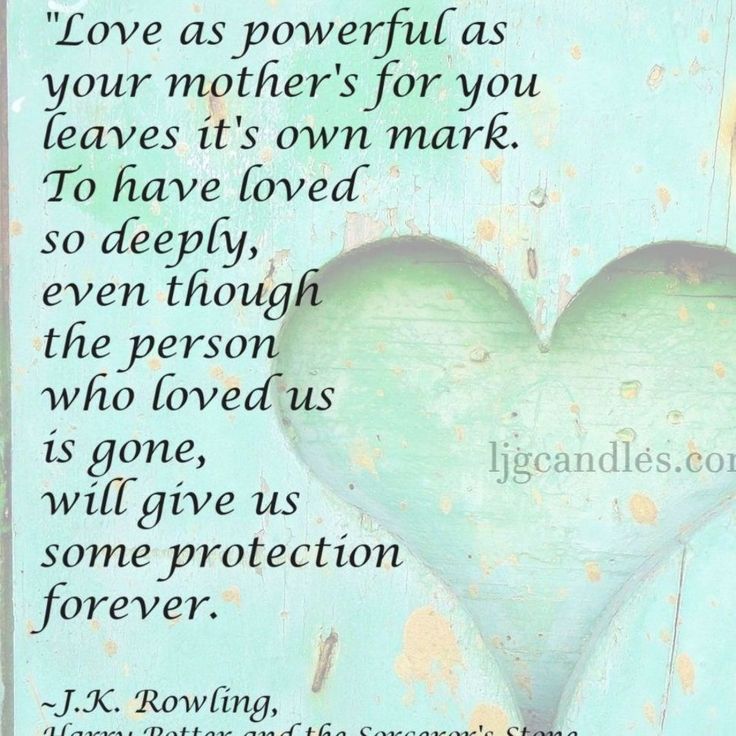
What if there are small children in the family? How not to hurt them?
PhD in Psychology Natalya Nozikova and educational psychologist Ekaterina Kolesnik argue that a child is more likely to survive grief without post-traumatic stress syndrome if they can show their feelings. And also if there is a significant adult in his life who cares about him.
Lena, 36 years old
When my mother died, my daughter was less than two months old. I was not at the funeral, I could not leave her with anyone. I think mom would understand. I don't have an open gestalt about goodbye.
I was constantly taking care of my daughter. I consoled myself with thoughts that it is natural that we bury our parents. Mom lived a difficult life, buried two sons, but at the same time remained strong. I wanted to get support from her, I couldn’t believe that I couldn’t call her. Although I am 36 years old, it seems that before the death of my mother I was a child, and now I have become an adult.
Although I am 36 years old, it seems that before the death of my mother I was a child, and now I have become an adult.
Olga Shaveko
A child can be told that a grandmother or mother has died, that we will not see her now, but we will remember her. You can take the child to the funeral, but do not lead him if he does not want to, do not push him to take action. It is important for a child, like an adult, to say goodbye to a loved one. The mere presence at the funeral is not traumatic for him. The hysteria of an adult that he sees can scare a child.
Younger children aged 3-5 see death as something reversible. From the age of 6, children understand that living beings tend to die. You can build a conversation based on the questions of the child and his reaction.
If you feel that a child will take the news of death hard, you can read fairy tales in which the heroes lose someone close.
Clients often say: “How can I cry when there are children around?” If a person does not beat his head against the wall, then children are able to withstand the tears of their parents. You can tell the child: "I'm sad that my grandmother is not around." This is how we allow the child to feel. Children also grieve, but they may express it differently.
You can tell the child: "I'm sad that my grandmother is not around." This is how we allow the child to feel. Children also grieve, but they may express it differently.
How long will it take to return to life?
Predictions are difficult because people deal with grief in different ways. In a study from the University of Cambridge, many people describe the first 4-6 months after a loss as the peak of mourning. The experience of grief does not end there, but after this period the person may feel more stable.
Olga Shaveko
For many clients, mourning takes 1.5–2 years.
It can be understood that the process of mourning has ended if the emotions have become weaker. The feeling of pain and loss will roll over, but it will be more sadness and regret, and not hopeless grief.
There is a stereotype that only good things are remembered about the departed.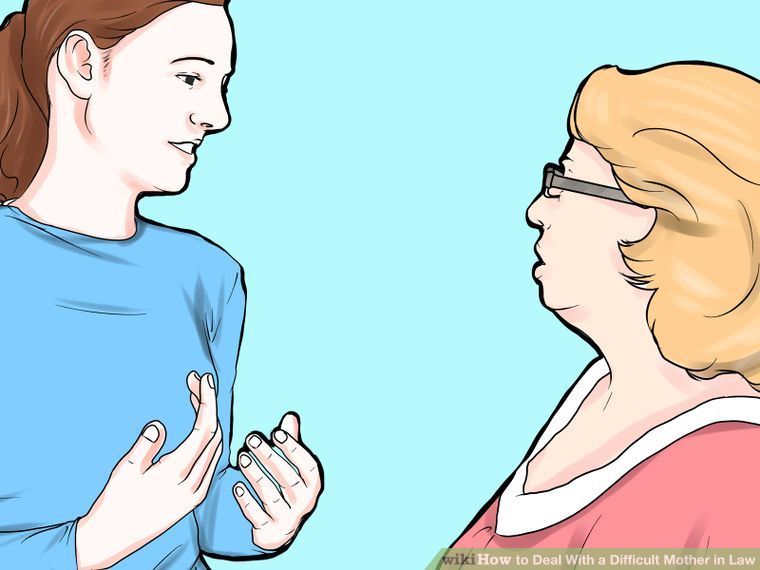 However, if mom is remembered as unrealistically good, it may mean that the work of grief has not yet been done. When the mourning process is completed, the memories will be voluminous - both good and bad.
However, if mom is remembered as unrealistically good, it may mean that the work of grief has not yet been done. When the mourning process is completed, the memories will be voluminous - both good and bad.
When should I ask for help?
An article for the non-profit organization HelpGuide lists signs to seek help for:
-
Feel like life isn't worth living.
-
We would like to die with our mother.
-
Blame yourself for your mother's death.
-
For several weeks you have not felt connected to others, as if you were separated from them.
-
Do not trust anyone after the death of your mother.
-
Unable to do your daily activities.
You can also ask for help, even if you are doing well: just to make yourself easier and more comfortable.
Olga Shaveko
The very loss of a loved one is a reason to seek help. A psychologist or psychotherapist creates a safe space for emotions to live.
I would definitely advise you to start working in the following cases:
1. If the mother left a long time ago, and the amplitude of emotions does not decrease.
2. If tears appear in a conversation about mother, one gets short of breath, it is difficult to speak.
3. If the process of mourning is not so long, but it completely knocks you out of life, you cannot work, do household chores.
You can find a specialist on websites and social networks in the communities of psychologists: Gestalt approach, cognitive approach, systemic family therapy will do.
If there is no money for an expensive specialist, you can turn to undergraduates. These are people at the last stage of education, they also go to personal therapy and supervision and can provide qualified assistance.





